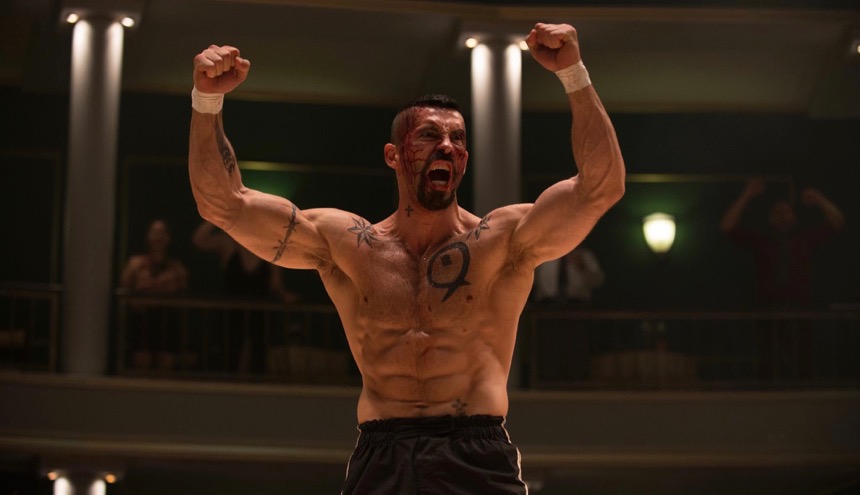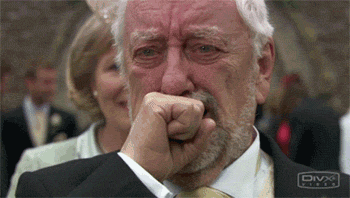BOYKA: UNDISPUTED
Todor Chapkanov, 2016

When an MMA fighter accidentally causes the death of his opponent, he decides to help the opponent's widow pay off her debt to a mobster.
I've written in the past about my mild fascination with the present state of direct-to-video action movies and how they prove surprisingly watchable despite their cheap production values and often rudimentary approach to narrative and thematics. The obvious examples would be John Hyams'
Universal Soldier sequels, which are much more impressive than their theatrically-released predecessors; the same goes for the DTV sequels to Walter Hill's underwhelming prison-boxing flick
Undisputed. I didn't see
Undisputed II, which introduced Yuri Boyka (Scott Adkins) as the villainous champion of a Russian prison-fighting league, but I did catch
Undisputed III: Redemption, which saw Boyka attempting to atone for his dark past while also trying to survive another deadly underground tournament. While I couldn't speak to it being high art or anything, it's still appreciable as a lean and mean action film that is capable of accomplishing quite a bit with such little resources, throwing out some brutal and well-choreographed fight scenes in the process. Follow-up
Boyka: Undisputed ratchets up the redemption angle as a guilt-ridden Boyka risks everything - his shot at a legitimate fighting career, his freedom, even his life - to come to the aid of Alma, a woman who's been left devastated after Boyka inadvertently caused her husband's death in the ring.
The plot is nothing new - to clear Alma's debt to the local kingpin, Boyka must do multiple prize-fights at the kingpin's nightclub - but its clichéd nature doesn't matter as long as it stays functional between fights. Adkins has his limits as an actor, but he's got a certain magnetism that helps to sell Boyka's inner conflict in ways that written dialogue can't quite manage (especially not this dialogue). It's mainly down to his status as a physical performer who can quite readily do his own stunts and fighting, which shows in the film's many fight scenes. While there's something to be said for how the film gets actual fighters who can deliver some swift and powerful brawls, they can threaten to get a little repetitive and are very much on par with the fights from
Redemption. They're not technically awful - you can see everything that goes on in some fairly long wide-angled shots without it becoming sluggish as a result - but there's only so much that can be done with the format and it really starts to show towards the end.
Boyka: Undisputed is a serviceable action flick that does enough things right so that it can be honestly described as simple fun, but it doesn't feel like an improvement on
Redemption - if anything, it feels like a very slight step down. I'll definitely recommend it to those who enjoy an uncomplicated, competently-made, and earnest beat-'em-up, but there's not much here that makes me think that it's worth special consideration in that regard.










